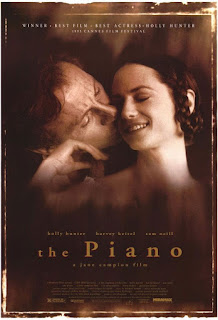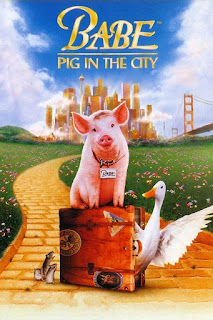January 20th: ORPHEUS (Jean Cocteau, 1950)
NOTE: This film will be projected in the high-definition Blu-ray format.
A popular but tormented poet pursues his abducted wife to the Underworld, and finds himself falling for the female incarnation of Death.
Jean Cocteau is one of the towering figures of 20th century avant garde culture, a poet, playwright, novelist, painter, and filmmaker who collaborated with such luminaries as Igor Stravinsky, Pablo Picasso, Edith Piaf, Vaslav Nijinski, Coco Chanel, and Erik Satie, among others. His debut feature film The Blood Of A Poet arrived in 1930, with a 16-year absence until his follow-up, the influential adaptation of Beauty And The Beast.
At the age of 60, Cocteau began another ambitious project, a modern retelling of the Greek mythology story of Orpheus and Eurydice, against the particular atmosphere of post-WWII Paris. Changing the title character's profession from musician to poet and setting the action inside bohemian circles, the story became more personal for the director.
In the lead, title role is actor Jean Marais, a frequent collaborator and former lover of Cocteau's, who is joined by Spanish actress Maria Casares (Children Of Paradise), François Périer (Le Samourai), and Edouard Dermithe, Cocteau's current lover. Parts were offered to Greta Garbo and Marlene Dietrich, but neither were interested.
Cocteau used an array of practical effects to create the more fantastical, dreamlike elements of his story, such as reverse motion, photography through and against mirrors, and water. Other conceits include a talking car, and the fetishization of motorcycle culture.
In addition to the basic autobiographical details, there are allusions to the hierarchy of artistic circles, and Cocteau's awareness/fear of his own status within it, the persecution of his sexuality, and in more general societal terms, the mood of paranoia during the German Occupation, the defiance of the resistance, and the effect of the war on France's geography, with scenes set in the "Underworld" shot in bombed-out locations and the ruins of buildings.
While in production, Cocteau was received into the order of the Legion of Honor, France's highest decoration. In addition to this institutional validation, Cocteau's work was influential on the soon-to-come French New Wave, who tended to dismiss "old guard" national filmmakers. In 1960, Cocteau made a meta-sequel starring himself, The Testament Of Orpheus.
Running time is approx. 90 minutes.
A popular but tormented poet pursues his abducted wife to the Underworld, and finds himself falling for the female incarnation of Death.
Jean Cocteau is one of the towering figures of 20th century avant garde culture, a poet, playwright, novelist, painter, and filmmaker who collaborated with such luminaries as Igor Stravinsky, Pablo Picasso, Edith Piaf, Vaslav Nijinski, Coco Chanel, and Erik Satie, among others. His debut feature film The Blood Of A Poet arrived in 1930, with a 16-year absence until his follow-up, the influential adaptation of Beauty And The Beast.
At the age of 60, Cocteau began another ambitious project, a modern retelling of the Greek mythology story of Orpheus and Eurydice, against the particular atmosphere of post-WWII Paris. Changing the title character's profession from musician to poet and setting the action inside bohemian circles, the story became more personal for the director.
In the lead, title role is actor Jean Marais, a frequent collaborator and former lover of Cocteau's, who is joined by Spanish actress Maria Casares (Children Of Paradise), François Périer (Le Samourai), and Edouard Dermithe, Cocteau's current lover. Parts were offered to Greta Garbo and Marlene Dietrich, but neither were interested.
Cocteau used an array of practical effects to create the more fantastical, dreamlike elements of his story, such as reverse motion, photography through and against mirrors, and water. Other conceits include a talking car, and the fetishization of motorcycle culture.
In addition to the basic autobiographical details, there are allusions to the hierarchy of artistic circles, and Cocteau's awareness/fear of his own status within it, the persecution of his sexuality, and in more general societal terms, the mood of paranoia during the German Occupation, the defiance of the resistance, and the effect of the war on France's geography, with scenes set in the "Underworld" shot in bombed-out locations and the ruins of buildings.
While in production, Cocteau was received into the order of the Legion of Honor, France's highest decoration. In addition to this institutional validation, Cocteau's work was influential on the soon-to-come French New Wave, who tended to dismiss "old guard" national filmmakers. In 1960, Cocteau made a meta-sequel starring himself, The Testament Of Orpheus.
Running time is approx. 90 minutes.









Comments
Post a Comment